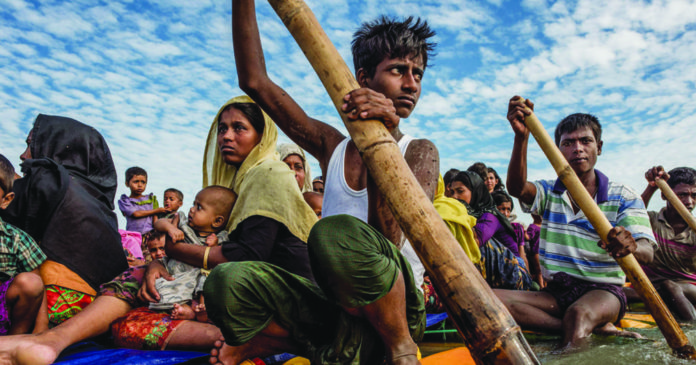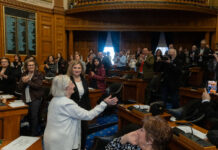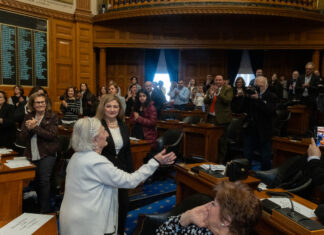LOS ANGELES — For Rohingya villager Shafika Begum, life in Myanmar was isolating but for the most part peaceful until 2012.
That’s when the Myanmar military of the Buddhist-majority began making regular sweeps through her village. The soldiers demanded resources from the Muslim-minority Rohingya; about once a month, they would come to Begum’s father’s farm to collect a chicken.
Catastrophe struck the village, Tula Toli, on August 30 of 2017. As part of a coordinated attack across the Rakhine State that had begun a few days prior, the Myanmar Army and local collaborators burned down dwellings and unleashed a massacre, gunning down Begum’s husband, father-in-law and younger sister as they were trying to flee.
This is the account Begum, 20, gave to the University of Southern California (USC) Shoah Foundation from a refugee camp in Bangladesh. Filmed in March, her interview is among 11 Rohingya testimonies added in late August to the Visual History Archive.
The integration of the new collection means the Archive now represents nine genocidal events: the Holocaust, the Armenian Genocide during World War I, the 1994 Genocide against the Tutsi in Rwanda, the 1937 Nanjing Massacre in China, the Guatemalan Genocide of the early 1980s, the Cambodian Genocide of the 1970s, the ongoing South Sudan Civil War, the Central Africa Republic conflict of 2012, and anti-Rohingya Mass Violence of 2017.
The Rohingya interviews — excerpts of which were aired by CNN on August 24 as part of a partnership with the institute — were among 88 new testimonies to go live on August 26. The update brings the total number of testimonies in the Archive to 54,534.










